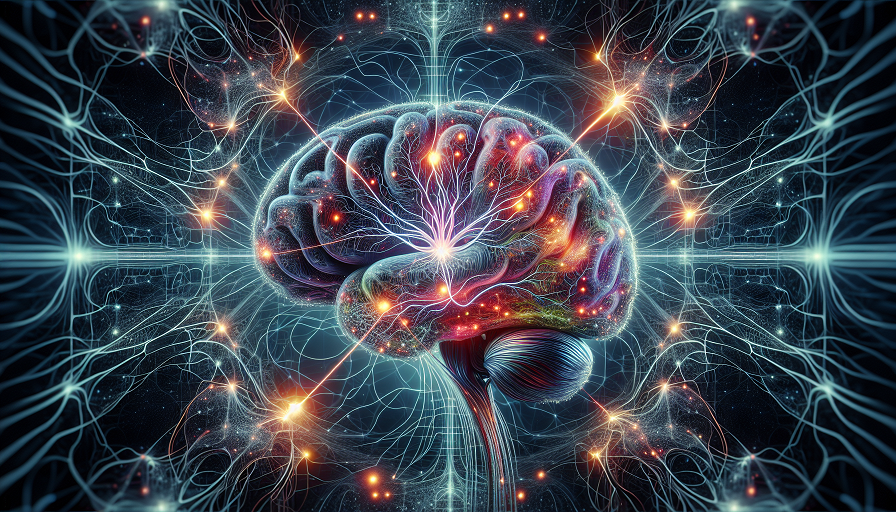
When it comes to cognitive enhancement, students have more options than ever before. From natural nootropics like Bacopa Monnieri and Lion’s Mane Mushroom to prescription smart drugs such as Adderall and Modafinil, the choices can feel overwhelming. While both categories aim to boost focus, memory, and mental clarity, they differ significantly in terms of effectiveness, safety, and long-term impact.
Contents
What Are Natural Nootropics?
Natural nootropics are plant-based or naturally occurring compounds that enhance brain function. They have been used for centuries in traditional medicine systems such as Ayurveda and Traditional Chinese Medicine. Unlike synthetic drugs, natural nootropics are generally considered safe for long-term use and come with minimal side effects.
Common examples include:
- Bacopa Monnieri: Known for improving memory and reducing stress.
- Lion’s Mane Mushroom: Supports neurogenesis and cognitive clarity.
- Rhodiola Rosea: An adaptogen that combats fatigue and enhances focus.
- Ginkgo Biloba: Improves blood flow to the brain, boosting memory and concentration.
Natural nootropics work by supporting the brain’s natural processes, including neuroprotection, neurotransmitter regulation, and improved blood flow.
What Are Prescription Smart Drugs?
Prescription smart drugs are pharmaceutical compounds designed to treat specific medical conditions, such as ADHD, narcolepsy, or cognitive decline. However, they are often used off-label by students seeking a cognitive edge. These drugs are synthetic and target neurotransmitters like dopamine and norepinephrine to enhance alertness, focus, and wakefulness.
Popular examples include:
- Adderall: A stimulant commonly prescribed for ADHD that boosts focus and energy.
- Modafinil: Used to treat narcolepsy, it promotes wakefulness and cognitive clarity.
- Ritalin: Another ADHD medication that improves attention and concentration.
While these drugs can deliver powerful results, they come with a higher risk of side effects and dependency.
Key Differences Between Natural Nootropics and Prescription Smart Drugs
Let’s explore how these two categories compare across several important factors:
Effectiveness
Prescription smart drugs typically deliver faster and more pronounced effects. For example, Adderall and Modafinil can significantly enhance focus and wakefulness within hours of consumption. However, their benefits are often short-lived and may not address long-term cognitive health.
Natural nootropics offer more gradual and sustainable improvements. While they may not produce the immediate “boost” of prescription drugs, they support overall brain health and promote long-term cognitive enhancement.
Safety and Side Effects
Natural nootropics are generally considered safe for most people when taken at recommended doses. Side effects, if any, tend to be mild and include digestive discomfort or headaches. For example, Bacopa Monnieri may cause stomach upset if taken on an empty stomach.
Prescription smart drugs, on the other hand, carry a higher risk of side effects. These can include:
- Increased heart rate and blood pressure
- Insomnia and disrupted sleep patterns
- Dependence or addiction
- Headaches, nausea, and irritability
Long-term use of prescription drugs without medical supervision can lead to more severe health issues, including cardiovascular problems and mental health challenges.
Accessibility
Natural nootropics are widely available over the counter or online, making them easy to access. They don’t require a prescription, and their affordability makes them a popular choice for students.
Prescription smart drugs, as the name suggests, require a doctor’s prescription. Using these drugs without medical oversight is not only illegal but also potentially dangerous.
Ethical Considerations
The use of prescription smart drugs for academic purposes raises ethical questions, particularly in competitive environments. Some argue that these drugs provide an unfair advantage, akin to doping in sports. In contrast, natural nootropics are seen as a holistic approach to brain health, aligning with wellness and self-improvement rather than shortcuts.
Long-Term Benefits
Natural nootropics support brain health over the long term by promoting neuroprotection, reducing inflammation, and enhancing neurogenesis. Prescription smart drugs, while effective in the short term, do not offer these sustained benefits and may even harm cognitive function with prolonged use.
Which Option Is Right for Students?
The choice between natural nootropics and prescription smart drugs depends on your goals, health considerations, and ethical stance. Here’s a quick guide to help you decide:
- Choose Natural Nootropics If: You want to enhance cognitive performance safely, sustainably, and holistically. They are ideal for students looking to support long-term brain health while improving focus, memory, and learning.
- Consider Prescription Smart Drugs If: You have a diagnosed condition like ADHD or narcolepsy and are under medical supervision. These drugs can provide targeted support for specific challenges but should never be used recreationally or without guidance.
Tips for Responsible Use
Whether you opt for natural nootropics or prescription smart drugs, responsible use is essential. Follow these tips to maximize benefits while minimizing risks:
- Consult a Professional: Always seek advice from a healthcare provider before starting any new supplement or medication.
- Start Small: Begin with the lowest effective dose and monitor your body’s response.
- Prioritize Lifestyle Factors: Healthy habits like regular exercise, balanced nutrition, and adequate sleep enhance cognitive performance more than any single supplement or drug.
- Avoid Dependency: Use nootropics as tools to support your efforts, not as crutches for productivity.
Both natural nootropics and prescription smart drugs have their place in cognitive enhancement, but they serve different purposes and come with distinct advantages and risks. For most students, natural nootropics offer a safer, more sustainable path to improved brain function. They align with long-term wellness goals and provide a holistic boost to memory, focus, and learning.
Prescription smart drugs, while effective, should be reserved for individuals with specific medical needs and used under professional guidance. The decision ultimately comes down to your priorities, health, and values. By understanding the differences between these options, you can make an informed choice that supports your academic success and overall well-being.

